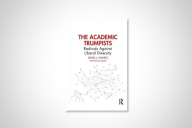You have /5 articles left.
Sign up for a free account or log in.
A regional director of the National Labor Relations Board on Monday released a decision backing a union election for adjunct instructors at Manhattan College, most likely setting the stage for an intense legal battle over religious freedom and workers' rights.
The decision largely states that Manhattan isn't religious enough to be exempt from the NLRB's jurisdiction, and that its employment relationship with its adjuncts is essentially a secular one. "While the college may well be affiliated with the [Roman Catholic] Church and take pride in its historical relationship with the church, the college's public representations clearly demonstrate that it is not providing a 'religious educational environment,' " the decision says.
The case -- already contentious before the decision -- is likely to be closely watched by both organized labor and religious organizations. Manhattan College is like many other Catholic institutions (and some colleges affiliated with other religious groups) in that it admits many non-Catholic students, employs many non-Catholic professors and boasts of its independence, academic freedom, and diversity. The kinds of arguments made by the union (and now embraced in an NLRB ruling) could probably be made about many other institutions -- many of which may be fertile ground for adjunct union organizing.
Manhattan officials have said that the case turns the NLRB into some sort of judge of its religious fealty -- and would violate a Supreme Court decision protecting religious institutions from union drives. But union leaders have said that Manhattan is unfairly making a religious issue out of what is really a bread-and-butter union campaign to win better wages and benefits for adjuncts who teach secular subjects in the same way they do at unionized campuses.
In an e-mail sent Monday night to Manhattan adjuncts, union organizers said: "The college has now spent tens (if not hundreds) of thousands of dollars on legal fees delaying an election for adjunct faculty. We call upon President [Brennan] O'Donnell and the Manhattan College administration to refrain from spending more money (and risking further embarrassment to the College in the greater academic and faith community) by appealing the Labor Board's decision. It is time for adjunct faculty to decide the question of unionization for themselves." The drive is being led by New York State United Teachers, an affiliate of both the American Federation of Teachers and the National Education Association.
Despite that plea, it is quite likely that Manhattan officials (who could not be reached last night) will appeal to the full NLRB and/or to federal courts. This webpage maintained by the college contains a series of letters outlining its views on the union drive. One letter from O'Donnell, during NLRB hearings that led to Monday's decision, said that "the line of questioning being pursued by the NLRB and the union unfortunately betrays a serious lack of understanding of the Catholic nature of the college." That letter added: "Our identity is not a set of easy labels or sound bites, nor a rigid set of facts, figures, and practices to be quantified and judged by the government acting as some sort of religious licensing board."
The NLRB decision, by Elbert F. Tellem, acting regional director for the area including New York State, reviews a series of pieces of evidence about the college. Manhattan officials emphasized the various ways the college stresses its ties to Roman Catholic thought and to the Lasallian order. The union submitted evidence from many documents suggesting that Manhattan was in fact a secular institution with religious roots.
Both sides were trying to show why the case's result should or should not be similar to the 1979 decision by the U.S. Supreme Court in NLRB v. Catholic Bishop of Chicago that the NLRB could not authorize union elections for lay teachers at Catholic schools because doing so would create "a significant risk of infringement of the Religion Clauses of the First Amendment if the act conferred jurisdiction over church-operated schools." The concern was that NLRB officials would become involved in disputes over policies at the schools.
Monday's decision, while noting the Catholic Bishop case, also noted federal appeals court rulings saying that "market checks" are needed of institutions that claim their religious affiliations exempt them from collective bargaining. Such analysis, the NLRB ruling said, has been urged by the courts to "act as a check on institutions that falsely identify themselves as religious merely to obtain exemption" from labor relations laws.
The decision noted many documents and places where Manhattan refers to its religious ties and mission. But the ruling also noted repeated references in Manhattan documents to its independence, citing as one example a booklet given to new hires that states that the college is "neither controlled by the state or the church," and other statements that -- to qualify for various government programs -- the college has supported the "severing of its religious ties."
Further, the decision says that some college documents that purport to be about religious heritage are so vague that they apply to secular missions as well. For instance, the decision says that Manhattan has described its Lasallian philosophy as a belief in "excellence in teaching, respect for individual dignity, and commitment to social justice."








